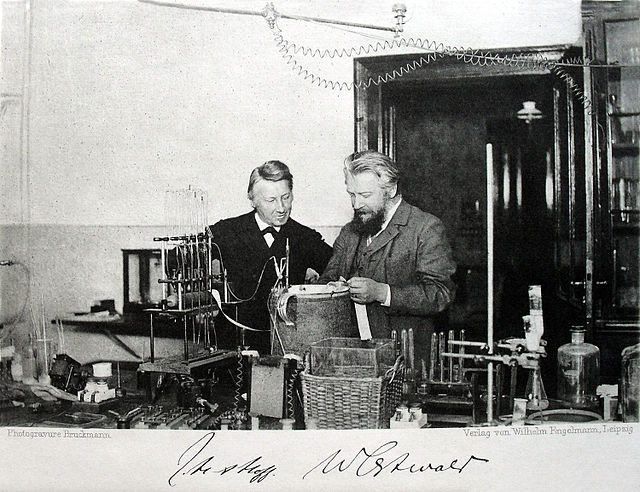Jacobus Henricus van 't Hoff
Jacobus Henricus van 't Hoff Jr. was a Dutch physical chemist. A highly influential theoretical chemist of his time, van 't Hoff was the first winner of the Nobel Prize in Chemistry. His pioneering work helped found the modern theory of chemical affinity, chemical equilibrium, chemical kinetics, and chemical thermodynamics. In his 1874 pamphlet, van 't Hoff formulated the theory of the tetrahedral carbon atom and laid the foundations of stereochemistry. In 1875, he predicted the correct structures of allenes and cumulenes as well as their axial chirality. He is also widely considered one of the founders of physical chemistry as the discipline is known today.
Van 't Hoff by Nicola Perscheid in 1904
Van 't Hoff in the 1900s
J.H. van 't Hoff with Wilhelm Ostwald (right)
Physical chemistry is the study of macroscopic and microscopic phenomena in chemical systems in terms of the principles, practices, and concepts of physics such as motion, energy, force, time, thermodynamics, quantum chemistry, statistical mechanics, analytical dynamics and chemical equilibria.
Between the flame and the flower is aerogel, whose synthesis has been aided greatly by physical chemistry.
Fragment of M. Lomonosov's manuscript 'Physical Chemistry' (1752)





